Bull (offered to us for EUR 200)
Labels: Ethiopia, Trip to Middle East and Africa
Trip to Middle East and Africa 2005-2006 ... and what happened next
Labels: Ethiopia, Trip to Middle East and Africa
Labels: Ethiopia, Trip to Middle East and Africa

Maar ondanks alles is het een prachtige stad met prachtige gebouwen.
De stad wordt(door de Ethiopiers) gezien als vierde heilige stad in de
islam. De stad is nauw verbonden met Haile Selassie en zijn vroeg
overleden vader Ras Makonnen en keizer Menelik. Zij hebben hier in de
stad een paleis (gehad). De vader van Haile was gouverneur en familie
van de keizer. Uiteindelijk werd Haile Selassie door Menelik als zijn
opvolger aangewezen. De keizer is 83 jaar oud geworden maar in 1974
werd Ethiopie door een staatsgreep een republiek. Het regime gunde de
keizer in 1975 geen staatsbegrafenis, dat werd in 2000 nog een keer
overgedaan.
Naast de keizerlijke band, heeft de Franse schrijver en dichter
Rimbaud hier een tijd gewoond en is hier (volgens mij) ook
gestorven.
Het enige dat eigenlijk zou moeten gebeuren, is wat ze in Asmara doen.
De boel restaureren en het in kaart brengen en een duidelijke
wandelroute o.i.d. voor toeristen maken. Het probleem is misschien dat
vele gebouwen van leem zijn en dus snel in verval geraken.
Maar wij vermaken ons hier prima. We zijn nog maar een paar dagen in
Ethiopie maar het kan niet meer stuk. Zelf het luxe hotel met weinig
tot geen water maar wel kakkerlakken en het feit dat ze opeens geen
kamer meer voor ons hebben, kan de pret niet verstoren.
Labels: Ethiopia, Trip to Middle East and Africa
Labels: Ethiopia, Trip to Middle East and Africa
Labels: Ethiopia, Trip to Middle East and Africa
Labels: Ethiopia, Trip to Middle East and Africa
Labels: Djibouti, Ethiopia, Trip to Middle East and Africa
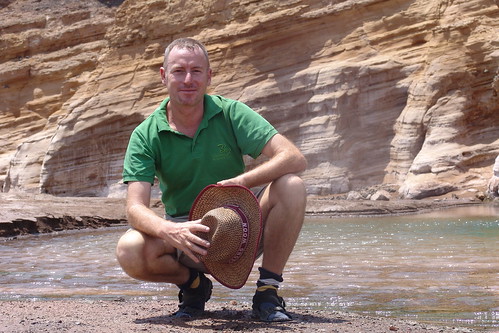
Labels: Djibouti, Trip to Middle East and Africa
Labels: Djibouti, Trip to Middle East and Africa
Labels: Djibouti, Trip to Middle East and Africa
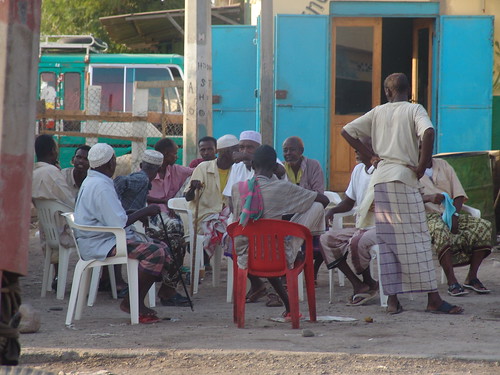
Labels: Trip to Middle East and Africa
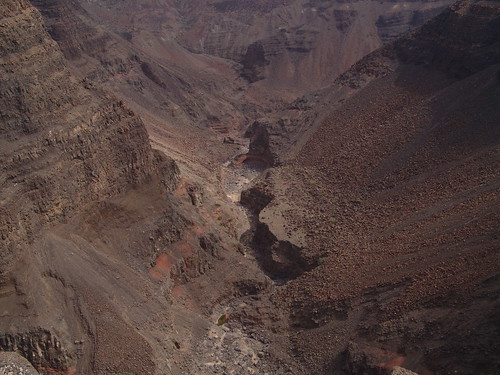
Labels: Djibouti, Trip to Middle East and Africa
Labels: Djibouti, Trip to Middle East and Africa
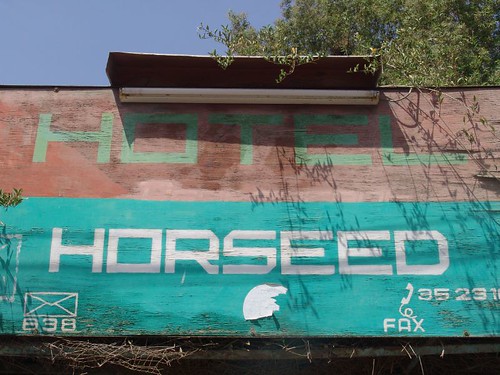
Vandaag kan niet meer stuk. Alles ging van een leien dakje en we
kunnen het zelf nog niet geloven. Wat was er dan allemaal aan de hand?
Charles is in 1961 in de stad Hargeisa geboren, dat is in Somaliland.
Somaliland was tot en met 1960 een Brits protectoraat. De rest van
Somalië was voornamelijk Italiaans bezit geweest. In 1960 werd het
gebied dus onafhankelijk onder de naam Somaliland. Maar dat duurde
maar 5 dagen en toen zijn ze onderdeel geworden van het grotere
Somalië. Dat was geen succes en een bloedige burgeroorlog brak uit in de jaren '80. In
1991 werd het land weer zelfstandig als Somaliland. Probleem is dat
de Verenigde Naties het niet erkennen.
De eigenaar van ons hotel is ook Somalilander en hij heeft ons
vanmorgen meegenomen naar het consulaat van Somaliland. Daar eenmaal
binnen liepen we tegen een meneer op die Osman Ali heet en een neef is
van de minister van Buitenlandse Zaken van Somaliland, mevrour Edna
Adan. In no time had hij zijn tante aan de lijn en gaf haar aan
Charles; Edna is vroedvrouw geweest en was vrijzeker degene die
Charles zijn moeder geholpen heeft bij de bevalling. Nu is zij de
vrouw die visas regelt. Na het gesprek werd al snel duidelijk dat de
consul generaal een visum voor ons aan het uitschrijven was. Er waren
een paar voorwaarden: we moeten na de verkiezingen van aanstaande
donderdag komen en met het vliegtuig want ze voelt zich
verantwoordelijk voor ons en wil niet dat we in problemen geraken.
Jullie hadden het gezicht van Charles moeten zien, hij straalde en was
zo trots en zo blij. De andere mannen uit zijn geboorteland straaalden
ook en spontaan kregen we geschiedenislesjes over Somaliland en
anecdotes over allerlei mensen die we niet kenden maar die schijnbaar
bij het verhaal hoorden. Tot mijn grote verbazing begon de consul
opeens in het Nederlands te spreken en vertelde dat hij in Amsterdam
gestudeerd had.
Met een visum, een poster en een geleide brief van Edna Adan verlieten
wij in een opperste stemming het gebouw.
Het volgende doel was een visum voor Ethiopië; binnen een half uur
geregeld en morgenvroeg ophalen. Wat wil een mens nog meer: twee
successen op één dag! Morgen nog het vervoer regelen (oeps) en dan op
weg naar Ethiopië om daarna naar Somaliland te kunnen en vervolgens
weer terug naar Ethiopië.
Labels: Djibouti, Trip to Middle East and Africa
Labels: Djibouti, Trip to Middle East and Africa
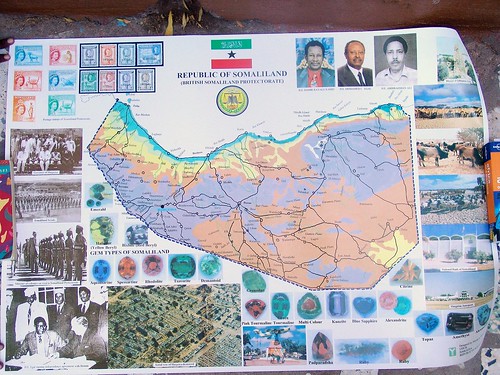
Well, an amazing day! We have the visa for Somaliland! In the process I spoke to Edna Adan, the foreign minister we mentioned on this blog in July before we left..... my midwife.
As you may have seen, there are parliamentary elections occuring on Thursday.Whatyou will not have read is that there has been some gunshots fired over and around Hargeisa the last three nights. No visas were to be issued until AFTER the elections. Only by Edna herself personally guaranteeing our safety, was the local consul able to issue the visa.
She was charmed by the story, although she never did receive the letter my father wrote to her. As it happened, her nephew Ali Osman happened to be in the consulate at the same time we were and he had her personal address and telephone number and managed to arrange for us to talk on the phone. A wonderful experience! She even said that she sort of could remember Mum and Dad from those days so far back.
Edna has advised us that it would probably be best, in the light of the shootings and of her having more time for us, if we came to Hargeisa AFTER the elections, so we will revise our travel plans.
Osman Ali is based in Djibouti but does lots of business with Hargeisa, which he says is a bustling city, even more than here. He also made the point that Somaliland DID exist as a separate independent state with membership of the UN for five days in1960, so should, according to the UN rules be given recognition, as the old colonial boundaries should stand.
We also hear, from someone elsethat maybe the President of Somaliland himselfis less keen on independence and recognition than the peopleof Somaliland. Maybe he is looking for a job in the Somali Republic.Anyway.....
I managed to show them alla copy of my birth certificate headed Somaliland Protectorate (despite the fact that Iwas born a year after independence). This was copied for the local archive. It appears that there are some people who deny even a separate existence ever for Somaliland.I wished I had more memorabilia from these days- and I am hoping that Mum can scan and send me some photos for me to take. Also some of the old Somaliland Protectorate stamps would be good, but these are all in Amsterdam.
When we eventually got to meet the consul, it turned out that he had studied in Holland - Amsterdam and Nijenrode - and still spoke Dutch! What a small world.
The only sad news was that the Registrar of Births died just a year ago. Apart from that the hospital where I was born is still there, only half damaged in the war. Osman Ali thinks I should try to get Somaliland nationality and maybe give an interview or two while I am there.
Labels: Djibouti, Trip to Middle East and Africa
Labels: Djibouti, Trip to Middle East and Africa
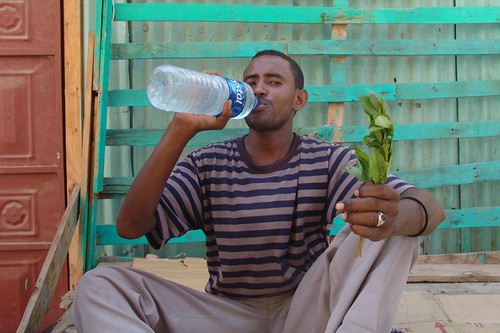
Labels: Djibouti, Trip to Middle East and Africa
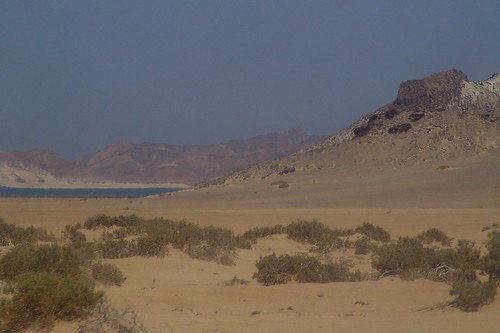
Labels: Djibouti, Ethiopia, Trip to Middle East and Africa
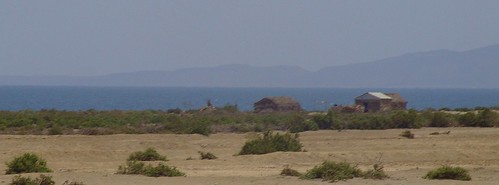
Labels: Djibouti, Trip to Middle East and Africa
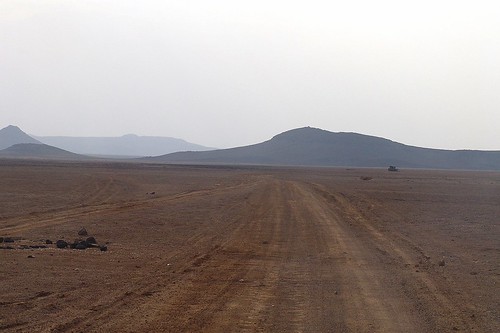
Labels: Eritrea, Trip to Middle East and Africa
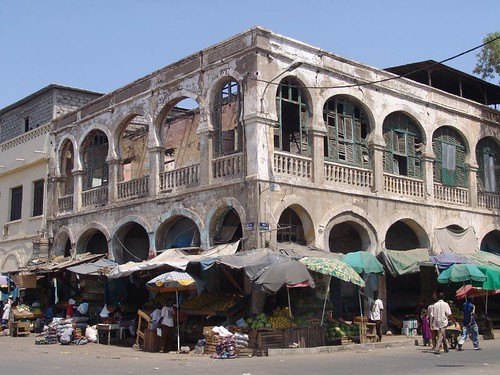
Labels: Djibouti, Trip to Middle East and Africa
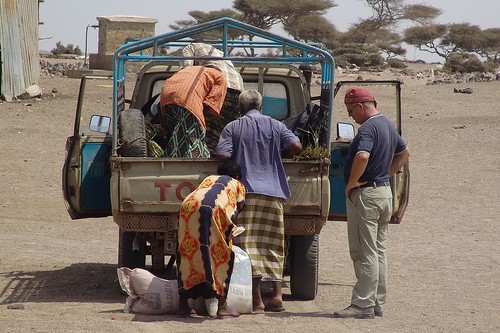
Labels: Eritrea, Trip to Middle East and Africa
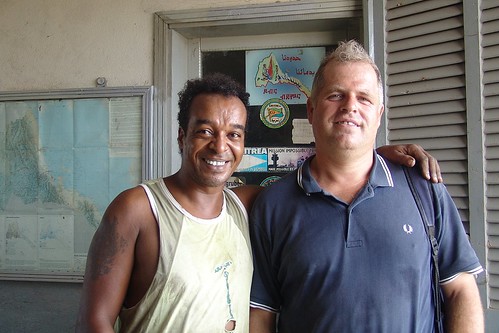
Medhane has lived in Assab for 10 years and is originally from Asmara. He has live dfive years in Torino and ten in Rotterdam and has Dutch nationality as well as Eritrean. He came back to Eritrea to escape two bad habits he had picked up in Holland, namely hash and slot machines. He arrived in the boom times for Assab, after the first peace with Ethiopia, and set up his tyre repair shop.
Now he is a well known and seemingly well liked man about town, with a wife and three kids. he would tell us that the current UN'ers from India were not much good for thr town as they did not spend a penny, unlike the Kenyans before who spent their salaries on women and drink andd kept the economy going. He told us that the government had banned imports into Eritrea except for things which were absolutely necessary, such as spare parts and - small amounts of - petrol. This explained for us why there was no coca cola to be had in any of the bars displying the coca cola signs!
It really seems like Eritrea is on a big curve downhill, the cause being the continuing border dispute with Ethiopia, the cause of which seems to be personal emnity, if not, mutual hatred between the two respective Presidents/dictators. It is odd to us, having travelled down the 'tail' of Eritrea (look at the maps), where the only place of importance is/was Assab, that the main justification for the current borders is that these borders were establmished by the Italian occupiers over 100 years ago. So many people in Africa are fighting to change such artificial borders and here is Eritrea whose main cause and justification for existence is such a border!
He arranged for us to get our permits to travel down to the border and put us in touch with Mohammad Ali and later invited us round to his house for dinner with his family, after stoping along the way for a beer, whiuch became two, drunk in the bar because he lives in a Muslim neighbourhood and the local residents association bannedd drink from the area. Dinner was great! Pasta with chips and a delicious salad and we delighted the children with the tiny teddy bears which we had brought from Holland, thanks to Rob and Jos�.
Medhane picked us up early-ish on Thursday to bring us to Mohammed Ali who was to bring us to the boat in Obock, with the instructions that we should not pay him until we were on the boat.
Labels: Eritrea, Trip to Middle East and Africa
Labels: Eritrea, Trip to Middle East and Africa
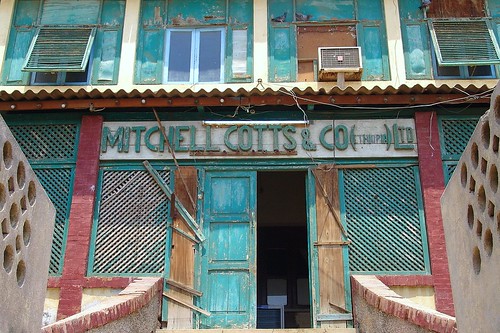
Assab used to be a major Red Sea port handling the bulk of freight to and from Ethiopia. This is clear to see by looking at the docks, container terminal and refinery. All locked up and behind bars now. Almost all the movement in the city now being UN vehicles driving around and Indian UN soldiers handing out free bottles of UN water to mark 60 year anniversary. My goodness was the needed, so hot and humid it was there.
The shops and bars along the front were all empty and crumbling and not just because it was lunchtime. The
international hotel we were staying at with its large terraces and bars, again almost empty. Empty because Ethiopia will not use the services of Assab port while the border dispute continues, preferring to use Djibouti and berbera despite the extra costs of transport. So the ordinary people of Eritrea have to suffer because of the ego and injured pride of a leader they cannot get rid of. Sad.
Anyway, our stay in Assab was spent mostly with
Medhane, who had arranged out trip further down to
Djibouti. His story is for another blog, as it is time
to go now, before the money runs out.
Just so that you know, we arrived in Djibouti this morning and, I, particularly feel very at home here
with 'my' people, the Somalilanders. Colourful, bustling, confusing, hot, friendly. The hotel owner, like many here comes from Hargeisa himself and he
will arrange for us to meet the Somaliland consul here. It seems like we could be there quite soon. But first, we have to enjoy what Djibouti has to offer.
Labels: Eritrea, Trip to Middle East and Africa
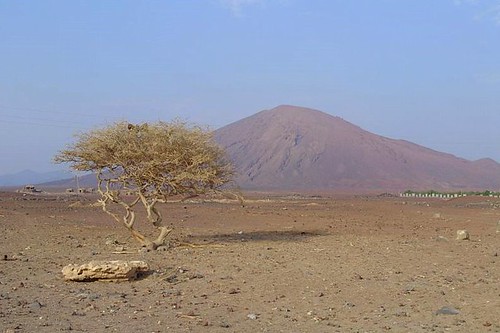
Vandag aangekomen in Djibouti na een lange reis.
We zijn dinsdagmorgen om 4.30 vertrokken uit Asmara. De bagage hadden
we een dag van te voren al afgegeven en lag keurig op het dak. Dit
keer zonder de gezelschap van geiten. Voor vertrek hebben we om 4 uur
ons traditioneel ontbijt genomen: kopje zoete thee en een stuk brood.
In de bus was het een drukte van belang. We deelden onze plek met een
dame. Voor ons zat een oudere mevrouw die beter af was geweest met een
verhuiswagen. Ze was tijden bezig om haar bonte verzameling aan
spulletjes in zakjes en tasjes te stoppen en daar weer plek voor te
vinden. Onder de banken of in de bagagerekken.
De reis ging eerst door de bergen en afentoe werd er gestopt voor een
plasje, een kopje thee o.i.d. Tot ongeveer 8 uur was het nog redelijk
koel in de bus maar daarna werd het snel warmer. De oudere dame deed
haar best om een frisse bries tegen te houden. Met hand en tand zat ze
haar open raampje te verdedigen tegen de tocht door het gordijn strak
tegen het ruitje te houden. Maar haar actie leidde als snel tot verzet
en ze moest de tochtstroom toelaten. Haar klaagzang over haar
nekspieren hielp niets. Ook het feit dat ze daarna de hele tijd met
een wollen trui om haar nek zat, kon de rest van de bus niet deren.
's Middags reden we langs de Rode Zeekust: leuk maar erg heet. Toen we
om 17 uur bij een controlepost vroegen hoe lang het nog naar Idi was,
kregen we een teleurstellende 'nog drie uur' te horen. De hitte nam
meer en meer toe en het was drukkend en benauwd.
Om 20.00 uur reden we Idi binnen. Het plaatsje bestond uit een straat
met aan beide kanten hutten. Een aantal hutten dienden tevens als
winkel of als restaurant. Het dorp was totaal onverlicht omdat
electriciteit nu eenmaal een probleem is. Mijn idee om even te gaan
douchen voor het eten kwam niet geheel uit. In de straat voor de
hutten stonden tientallen bedden op ons te wachten. Lekker slapen in
de open lucht! Ja en een douche of toilet was er niet. Het open gebied
achter de bewoning diende als toilet. Goed, bed opgezocht, spullen
neergezet en een restaurantgezocht. Lekker biertje uit de witte
maar zeker geen koelkast en een injera. Daarna zijn we gaan slapen
maar dat viel niet mee i.v.m. de drukkende hitte.
De volgende morgen ronkten de motoren van onze bus al gezellig rond
een uur of drie. Opstaan en wegwezen dus. We vonden het niet erg om zo
vroeg te mogen reizen. Rond een uur of acht waren we in Assab. Niet
lang daarna kwam meneer Medhane ons verwelkomen. Het hotel lag een
aantal meters verderop maar toch maar even met de auto. Na het
inchecken snel naar het toilet en gauw even douchen: wat een luxe!
Na het ontbijt heeft hij ons naar de VN-post gebracht voor het
verkrijgen van een 'permit' maar we moesten bij de militairen zijn.
Toestemming krijgen was geen probleem. Daarna bracht hij ons naar zijn
garage: Medhane heeft een banden reparatiebedrijf. Hij vertelde ons
zijn verhaal. Als vluchteling in 1986 in Rotterdam aangekomen. Vrij
snel nederlands geleerd en een technische opleiding gedaan. Toen nog
een aantal jaren in Italië gewoond en gewerkt. Toen is hij terug
gegaan naar Eritrea. Hij nodigde ons uit om 's avonds bij hem en zijn
vrouw te komen eten.
Nadat hij ons voorgesteld had aan de man die ons de volgende dag naar
Obock in Djibouti zal brengen, zijn wij de stad wat gaan verkennen.
Assab is erg triest. Deze havenstad heeft als gevolg van de discussie
met Ethiopië, totaal geen bedrijvigheid meer. Alles en iedereen wijkt
uit naar Djibouti-stad. De eens zo mooie havenprominade lag er leeg,
verlaten en vervallen bij. Je kon zien dat de stad vroeger allure
gehad heeft. Jammer! Als je de kaaart van Eritrea ziet, dan valt op
dat het land een lange maar vooral dunne strook land heeft tot aan
Djibouti. Hierdoor is Ethiopië ingesloten en heeft het geen enkele
toegang tot de zee: dit is dan ook een strijdpunt! Eritrea beroept
zich op de oude koloniale grenzen en zegt dat dit land door de
Italianen geschapen is en dat de strook erbij hoort. De VN is er
aanwezig maar de discussie tussen de twee landen schiet niet op.
's Avonds heerlijk gegeten bij Medhane en zijn gezin. Helaas had zijn
vrouw al met de kinderen gegeten en zat zij stil op de achtergrond.
Ondertusssn met Medhane in het nederlands over van alles en nog wat
zitten te kletsen.
Om een uur of tien naar bed met een tevreden gevoel en blij iemand
zoals Medhane te hebben leren kennen. De volgende dag zagen we dan ook
met een goed gevoel te gemoet.
Labels: Eritrea, Trip to Middle East and Africa
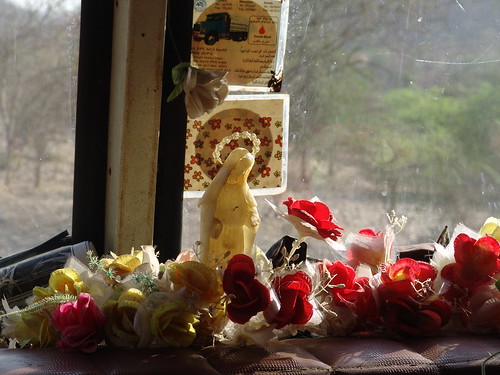
Well, it seems like a long time ago now, but we set off for Assab at about 5 am on Tuesday morning in a full bus, the Queen Bus, with very small windows, dark curtains and blackened out windows ... so not the best proposition for taking photos, although we were sitting on the left-hand side - the side of the sea.
Anyway, we first slept as it was dark as we pulled out
and descended into Massawa. At first light we noted that the Holy Mary was with us, a little white statue at the front of the bus, surrounded by garlands of
colourful plastic flowers. So, if we were not quite Priscilla we might have been Mary, Queen of the Desert.
Well, there is lots to tell and internet seems to be as impossible here as in Asmara, so I will just say
that we made numerous stops on the way, to the accompaniment to a really good collection of music tapes, poppy hits from Eritreq and Ethiopia, as we
made our way down the Red Sea coast, sometimes seeing the sea, sometimes just rocks, desert, mountains, hills, extinct volcanoes, small villages, groups of
goats and camels, shepherds, dry river beds, vultures
flying overhead and do on.
The surprise was just how far it was and how we carried on right into the dark of evening, with the
bus getting ever hotter and more humid, sweat bursting out on everyone's faces. So it was that we finally pulled into Idi at 8 pm, 15 hours after we had started. And what a sight. Wooden huts, each with one gas lamp burning and then.... rows and rows of beds laid out on the dusty street. These were to be our lodgings. A bed, a mattress and a pillow. Washing facilities were a large and small bucket of water.
Less than a Euro per bed.
We also managed to find food... enjera... AND warm beer, so we were well contented by the time we returned to our beds at 9 to sleep under a partially cloudy sky, the 3/4 moon, shining through, as two Afar shepherds turned up for the night.
The engines started at 3 am, and within half an hour we were loaded up for the next stint, getting into Assab at about 8.30 am.
Labels: Eritrea, Trip to Middle East and Africa
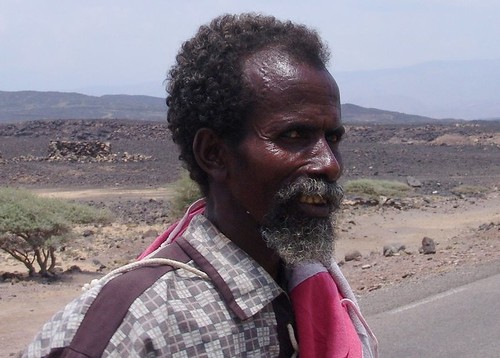
Yes, we finally laid our hands on two tickets for the bus to Assab, leaving tomorrow. We first descend the 8,000 feet to Massawa, the main Red Sea port and then follow the barraen coast down to Idi, where we will spend the night before carrying on the journey to Assab. We will be in Afar land, some of the most ferocious warriors of the region who, like the Yemenis carry knives and machine guns, although the ones living near the sea are said to be more friendly than those inland, whose main activity is extracting and carrying salt from the Danakil depression into Ethiopia. Here we will be met by an English and Dutch speaking Eritrean who runs a tyre repair service. He is looking forward to showing us around and using his Dutch. It is his friend who has offered to take us across the border into Djibouti to the town of Obock from where we will catch a boat across to Djibouti City. We will be away from internet access all this time, so no blogs and no pics.
Labels: Eritrea, Trip to Middle East and Africa
Labels: Eritrea, Trip to Middle East and Africa
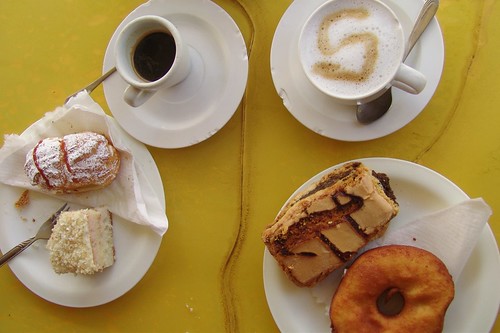
Vanmorgen om 10 uur hadden we met Hanah afgesproken. Ze werkt in ons
hotel en wel in het restaurantgedeelte. Elke avond staat zij met een
grote glimlach ons op te wachten. Traditiegetrouw drinken we bij haar
in de bar een biertje en gaan dan naar het eetgedeelte waar haar
vriendin Ellah werkt. Gisteren vertelde Hanah ons dat ze in Ethopie
opgegroeid is en ze liet ons in onze gids zien waar ze precies gewoond
had. En ze nodigde ons uit voor op de koffie.
Vanmorgen was het dus zo ver. We wandelden naar haar ouderlijk huis aan
de rand van de stad. Thuis aangekomen werden we begroet door een van
haar zussen. Ze vertelde ons dat ze twee zussen en een broer heeft.
De zus begon direct met het maken van een soort van ontbijt: injera.
Dat is een pannenkoek met een vleessaus. De saus bestaat uit spaanse
pepers, uien, tomaten en natuurlijk vlees. De pannenkoeken worden
gemaakt van een soort graan gemengd met water. Drie dagen lang staat dit mengsel te gisten en dan wordt het gebakken. Het geheel kan erg pittig zijn.
Terwijl zuslief bezig was in de bijkeuken, was Hanah druk met de
koffie. Niks geen oploskoffie en ook geen Italiaans gedoe met warme melk
en hete stoomblazende machines. Het was bijna puur handwerk. Allereerst ging
ze de koffiebonen zelf roosteren boven een houtskoolvuurtje. Daarna
werd het gemalen (dit was machinaal)en vervolgens werd de gemalen
koffie in een soort van kruik gedaan samen met water. Het geheel kwam
op het houtskoolvuurtje en wachten tot het ging koken. Nadat het
gekookt had, werd een klein deel uitgegoten in een soort van
maatbekertje gemaakt van een 'luncheon meat'-blik. Nadat het nog een
keer gekookt had, werd het kruikje in een rieten houder gezet om te
rusten (zodat de koffiedik kon zakken). Daarna werd het uitgeschonken
met natuurlijk veel suiker. Ondertussen zaten we wat te kletsen
maar haar Engels is beperkt. Terwijl Hanah bezig was kwam pa en later ma
binnen. Pa at de restanten van de injera en trok zich terug achter een
gordijn. Vijf minuten later lag hij , getuige het gesnurk, lekker te slapen.
Zuslief kwam uit de keuken met een grote schaal popcorn. Deze werd
nogeens aangevuld met honingbonbons en rozijntjes.
Het is gebruikelijk om drie kopje koffie te drinken. Hanah heeft danook
drie keer koffie gezet. Zodra de koffie opstond werd er wierook
aangestoken. We hebben ook weleens gezien dat ze wierook op het
houtskoolvuur leggen of in een speciale brander naast de koffie.
Tijdens het derde kopje kwam de broer binnen. Hij was ooit begonnen als
student medicijnen maar moest omschakelen naar ingenieur. Hij vertelde
ons dat de familie vijf jaar geleden uit Ethiopie geschopt was omdat
Eritrea toen in oorlog was met Ethiopie en zijn uit Eritrea kwamen.
Toen ze het land verlieten moesten ze hun bezittingen grotendeels
achterlaten. Hij sprak goed Engels en vertelde ons over de problemen
waar zijn land in geraakt was. De regering had de eerste jaren na de
onafhankelijkheidsstrijd tegen Ethiopie veel krediet bij de bevolking.
Maar na de oorlog tegen Ethiopie in 1999-2001 kwam er steeds meer
kritiek. De regering smoorde de kritiek in de kiem. Kranten kwamen
onder censuur. Democratische verkiezingen werden niet meer gehouden (60 zetels van de 104 worden door de president gewoon gevuld).
De oppositie nam toe maar en ging zich organiseren (voornamelijk in het buitenland).
Op dit moment mag geen enkel inwoner onder de 40 jaar het land uit. Vrouwen kunnen het land uit als ze met een buitenlander trouwen. Op speciaal verzoek, bijvoorbeeld van een Engelse universiteit, is het mogelijk om daar te gaan werken.
Er heerst grote werkloosheid, met name onder jongeren en het land is arm. De
meeste mensen zijn al blij dat ze gewoon te eten hebben en dat ze rond
kunnen komen. De enige methode om dit te omzeilen is te vluchten.
Sommigen proberen naar Ethiopie te vluchten omdat het daar beter is
(dan bijvoorbeeld in Soedan). Vluchten naar het Westen heeft meestal
geen zin omdat ze dan economische vluchtelingen zijn en meestal geen
schijn van kans hebben op wat voor status danook.
Na de koffie en de politiek kwam voetbal en broer wist van alles over
grootheden zoals onze Johan, onze Ruud, de Koemannetjes etc. Tijdens de
voetbalgesprekken kwam de oudste zus met zes maanden oude dochtertje
binnen. Volgens ons een goed moment om te gaan.
Nee dus eerst weer wat eten! Wat schetste onze verbazing: we kregen
injera's. Een tweede portie met die pittige saus is een behoorlijk
aanval op een toch al wat gevoelige maag. Maar goed we overleefden het. Gelukkig kregen we daarna niet nogeens drie koppen koffie. Na het eten
hebben we afscheid genomen van de familie. Hanah liep met ons mee
richting hotel. Ze moet om drie uur weer beginnen. Om de hoek van het
hotel verzocht ze ons om tien minuten te wachten en niets te zeggen
tegenover de mensen van het hotel en restaurant dat we haar ouderlijk huis
hebben bezocht. We beloofden en zijn een blokje om gegaan.
Van een huwelijksaanzoek of iets dergelijks is het niet gekomen. Zowel
Charles en ik hebben genoten van de gastvrijheid en van de gesprekken.
Veel geleerd vandaag.
Labels: Eritrea, Trip to Middle East and Africa
Labels: Eritrea, Trip to Middle East and Africa
Labels: Eritrea, Trip to Middle East and Africa
Labels: Eritrea, Trip to Middle East and Africa
Labels: Eritrea, Trip to Middle East and Africa
Labels: Eritrea, Trip to Middle East and Africa
Labels: Eritrea, Trip to Middle East and Africa
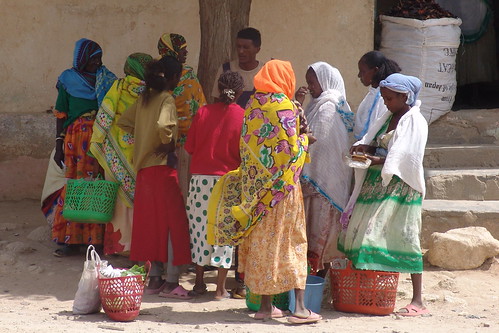
This scene was followed by us walking out of the
restaurant we normally eat at because the waitress
was so unfriendly and rude when cleaning the table and
giving (well throwing) us the menu. I don't think she
really understood WHY we left, bnut maybe one day she
will. Just hope the poor girl doesn't get the sack
though.
On the other hand, we DO have a great time with the
girls in the bar and restaurant of the Khartoum Hotel
every evening and this has sort of become the
highlight of the day for us!
Anyway, we took a car out of teh city, south to
Dekemhare, as it boasted the name of Naples of Italy
(see Naples and die?), with beautiful countryside,
favoured by artists and local wines and fruit
produce.
We found a dusty market town set amonst some rather
scrappy dry-ish looking countryside. Good for a few
photos of the colourful market and a good
cappuccino, but not much else. Not sure what happened
to the old Italian villas we were supposed to have
found.
Got to go now... to get that deposit back with as few
tears and stamping around as possible.
______________________________
As it happened, all went well, deposit returned and over dinner we had a laugh at ourselves for acting like a couple of spoilt brats. We reckon we have had good reason to get fustrated but really Eritrea has more important things to do than make life easy for us two. And despite the setbacks, we have encountered enough friendliness and kindness for this to have been a positive experience overall, and we wait with baited breath for what the rest of Africa has to offer.
Labels: Eritrea, Trip to Middle East and Africa
Chatting to an old man in Nefasit earlier today, he
was telling us just how bad the Ethiopians (former
Imperialist rulers of Eritea) are. Not just the
Ethiopian Afars who are far far more backward than the
Afars of Eritrea and Djibouti, but the others too. The
Ethiopians, we should know also commit human sacrifice
and remove people's genitalia and then show them off.
We had heard before a similar story about the Muslims
here, who if they did not have a sheep or goat to
sacrifice at Eid, or after Ramadan, would sacrifice
one of their own children.
Labels: Eritrea, Trip to Middle East and Africa
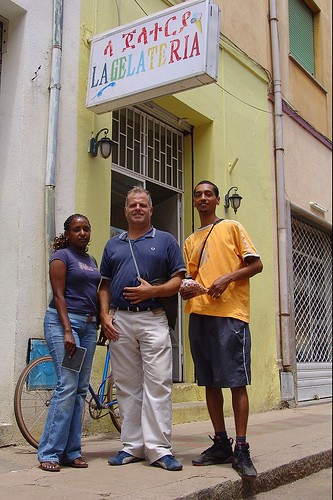
Labels: Eritrea, Trip to Middle East and Africa
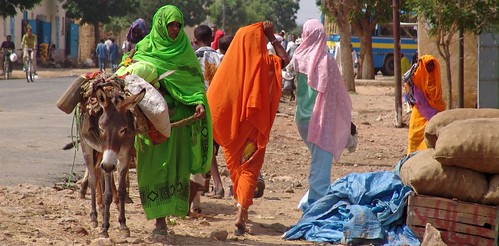
So, after the six hour hike (not sure if we mentioned
that), we have had two seven hour bus rides from
Asmara to Barentu and back again, both leaving at
break of day, about 5.00 am. The reason we came
straight back is that the bus which took us there was
due to go back today. Otherwise, we faced the prospect
of being stranded there for a few days, so few are the
buses which run currently.
This is due to the current 'situation'. It is not
entirely clear what this situation is, but it is
partly the high oil prices and partly the fact that
the UN is still sorting out the boundary dispute
between Eritrea and Imperialist Ethiopia.
Anyway, being with the locals meant amongst other
things sitting in front of a lady who smelled like
the worst of smells you ever find on a dirty street
market, sitting aside a man who kept telling us to
close the window, watching the goat on top of the bus
fall off and almost strangle himself, watching African
toiletry habits - how they pee into the wind (no tree
or bush or building) and even squat to pee (and during
the two days we saw any people sqatting), eating dry
bread and sweet tea for breakfast, being hauled out of
the bus every now and then for control by the military
authorities who wanted to check our permits and so on.
But is also meant making friends with fellow
passengers and watching the beautiful landscape fold
out before us, endless green vistas, one after the
other.
Labels: Eritrea, Trip to Middle East and Africa
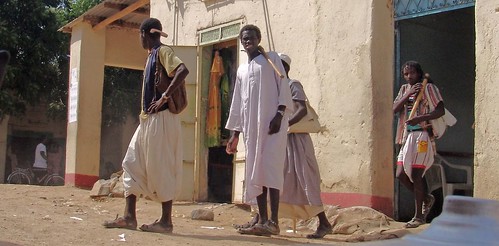
The tribal people of Gash Barka were quite amazing.
Unfortunately, they seemed very unwilling to have
their photos taken and it proved impossible to find a
quiet dark spot in which to sit and quietly click
without being noticed. And these were people you
really would not want to cross, so this description
will have to do.
The men had either very long fuzzy hair, in an
Afro-style (of all things) or tight curly hanging
locks. They would wear white clothes, colourfully
embroidered in reds, yellows, blues and greens. They
wore nappy-type shorts, loose fitting cloth around
their loins and they would wear whitish tape around
their bare legs, for effect. They carried sticks, in
the shape of an elongated boomerang, which looked very
strong indeed.
The women would often have a large gap between their
front teeth, which could only have been artificially
induced. Their hair would be braided and combed
tightly back at the front out to a wide bushy 'tail'.
Or they would have the tight flowing locks, similar to
the men, only the hair would be decorated with
brightly coloured beads (from India). So, it was an
interesting experience, walking around their town and
their round wooden huts.
At one stage I was face-to-face with one of the
warriors, he looking at me and me looking at him,
eye-to-eye. But it was impossible to communicate with
each other in any way and in an instant the moment passed.
Labels: Eritrea, Trip to Middle East and Africa
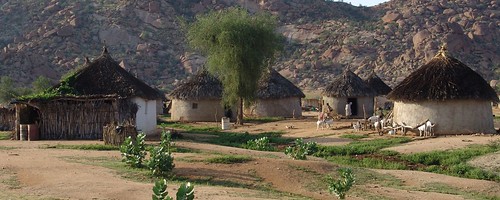
Wide open skies, mud and straw huts, little herds of
goats running around, a few camels, acacia trees,
kites and ibises flying and whirling around, donkeys
pulling carts, colourful tribal people wandering
around, children playing in the river water, smoke
coming out of the huts, the ladies preparing coffee,
surrounded by the smell of incense, the sun burning
down, little bars and hotels, U.N. soldiers and
World Food Programme, stunted baobab trees, a small
market by the bus station, another in town, selling
bananas, tomatoes, potatoes and sisal products... and
so on...
These were some of the impressions from Barentu,
capital of Gash Barka province in the West of Eritrea,
yesterday.
The day ended spectacularly with a massive storm cloud
brewing up from the north, just as the sun was
setting. The photos (which you may get to see one day)
are amazing. We sat out on the terrace of our Unite
Family Hotel, drinking beers and watching the free
lightning show as the cloud got ever closer. The
cloudburst, when it came was a little disappointing,
but after dinner it started raining consistently, such
that this morning, the rivers were flowing again and
there was a beautiful fresh wet smell to the beautiful
green landscape.
It was an early start again (5.00 am - the day before
having been 2.30 am due to a mix-up with Charles'
alarm clock), and a very dark start as the
electricity had fallen out. We were rewarded with a
very clear view of the late night sky, Mercury just to
the side of the mighty Orion, neither of which we had
seen so far on this trip. A couple of shooting stars
added to the fun.
Again, there were tremendous views on the way back to
Agordat, Keren and Asmara, especially in the early
morning sun. We travelled along a wide flood plain,
surrounded by interesting looking hills (all craggy
and spikey), birds flying over the acacia trees smoke
coming from the round huts in the villages.
These will make for some of the more positive
impressions left by Eritrea. Truth be told, we are
really quite fed up with things here and the complete
inability to plan anything and the willingness of
people to say 'no' to any request we may have. This is
the subject (maybe) of another blog, if ever we get to
make it back onto internet. (Get the picture).
Onward plans are still unknown, but if miracle of
miracles we manage to get a ticket for the bus to
Assab on Tuesday (now that Monday was sold out behind
our backs), we may take this. The alternative is the
Sunday flight to Djibouti.
Labels: Eritrea, Trip to Middle East and Africa
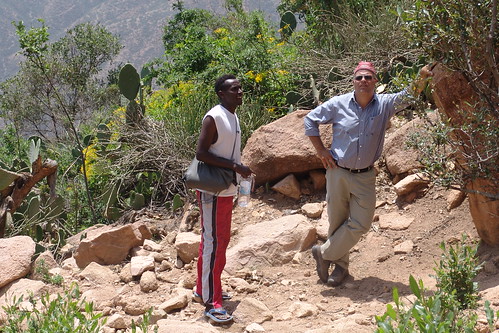
But first we needed to finalise our booking for the
bus to Assab, in the south which will be our
sprinboard into Djibouti, now that our English and
Dutch speaking friend down there has found someone who
is wiling to take us across the border (we have our
visas) and take us to "O" from where we can take a
boat across the bay to Djibouti City, away from the
dangers of pirates, which are found out at sea. From
Djibouti City it is just 20 miles to the Somaliland
border, not sure of this is open, but we will see.
Funnily enough we have not met ANYONE who has been to
Somaliland, during our whole trip. Funny that!
Anyway, having been told twice yesterday to come back
today to make a reservation on the bus, we were told,
quite happily by the two women who could have helped
us that it would not be possible to put our name down
for a bus next week, not even if we were not yoo
bothered about it leaving on Monday, Tuesday or
Wednesday. Eventually we found a man who gave us a
number we can ring on Friday, to get a seat for next
week. We will see.
So now, we just had to find a bus to Nefasit, which
was only 20 kilometers away. Well, cutting a long
story short, after Fred waited in a queue for a bus
whichj might or might not go to Nefasit (down what
must be one of the busiest roads in Eritrea), along
with women, chickes, babies and bundles of flour, we
decided to go with a taximan, who was willing to drive
us down and wait for us.
The trip down from the Asmara plateau to the coastal
plain was very picturesque, as it followed the route
of the Italian-built Asmara-Massawa railway, all
tunnels, bridges and twists. Nefasit turned out not to
be much of a town, but it has the distinction of being
very close to Debre Bizen, a very famous Eritrean
Orthodox monastery. It promised to have a library with
many very old, beautifully illuminated manuscripts
belonging to the Church, as well as having wonderful
views.
Our friend at the tourist office told us it was a 20
minute walk up from the twon to the monastery. Our
taxi driver doubted this and said we would take 2
hours to get up and down. From what I could see of the
very high mountain, even that looke d abit optimistic.
We were offered a guide, in a very take-it or leave-it
kind of way, after all the path went directly up to
the monastery. But more in order to avoid being
pestered by other chaps wanting to take us up, we
decided to take Rina's nephew Iskinder with us (Rina,
speaks Italian and runs the Rina Bar, a roadside cafe
with posters of Dutch tulips and David Beckham on the
walls, bottles of Eritrean grappa and sambuca on the
shelves behind the bar and a fridge full with
sparkling mineral water and cold beer).
Before we knew it we had attracted another guide, a
mini one called Natu (9 years old), and off they raced up the
mountainside, Fred and I lumbering behind. Fred has
not been too fit these past few days and I have been
having some nasty problems with teh dry skin on my
heels, making walking normally very painful....
Anyway, it was almost three hours later that we
finally made it up to Debre Bizen. We only managed it
through the skill of Iskinder (18 years old) motivating Fred to keep
going, when Fred felt quite keen to call it quits.
Amazing! He would make an excellent PE teacher.
The journey was very vertical, very spectacular, very
treacherous, with gravel and rocks slipping underneath
our tread. All right for the young ones who as good as ran up the hill vertically, taking all the shortcuts through the prickly and strong cacti and the thorny acacias. We were supposed to folow, but it was usually some distance behind when Natu wasn't giving us a helping hand (literally holding outr hands).
We passed beautiful flowers, butterflies, a
grasshopper, saw beautiful birds, including the
magnificent peregrine falcon, and heard and saw a few
families of baboons (a bit scarey they were too,
making all those aggressive noises).
The monastery reminded us very much of an Italian
hilltop village, old style, full of agricultural
buildings, donkeys, goats, cattle and camels. Not many
monks to be seen unfortunately. We were not shown
inside the church or the chapel or the library,
instead to an old shed, painted yellow and green, and
were served with sweet tea and enjera with very spicy
sauce. Not the most welcoming welcome, but it was what
we needed before the climb below. Didn't see many monks but heard them praying as we entered and then one racing throuhg some prayer at teh speed of a Peter 'Sullevan commentary oon a never-ending sicx furlong sprint at Goodwood!
We arrived back six hours after we had left, a long twenty minutes.
We are thinking that it is very difficult to arrange
anything here in Africa (and it is not only us but
also the journalist and PhD student we met up with for
dinner last night for a very enjoyable Italian meal),
but when yuu finally do, there is SUCH a sense of
achievement! And so it seems!
Tomorrow, we leave at 4.30 am fro Barentu, capital of
teh Barka-Gash province in the West and we should be
back here in Asmara on Saturday or Sunday, after
stopping off in Keren.
See you then!
__________________________________________________
Labels: Eritrea, Trip to Middle East and Africa